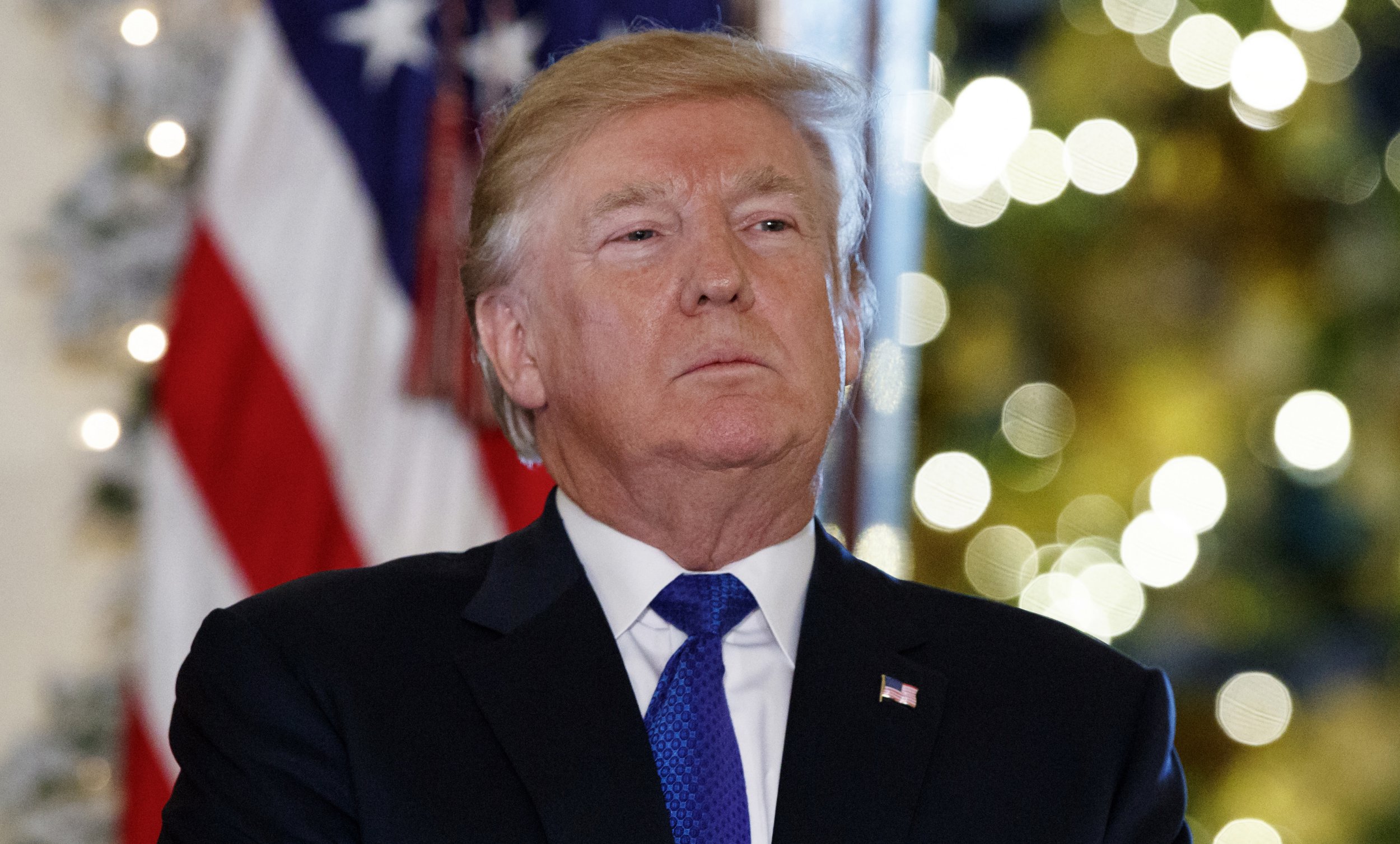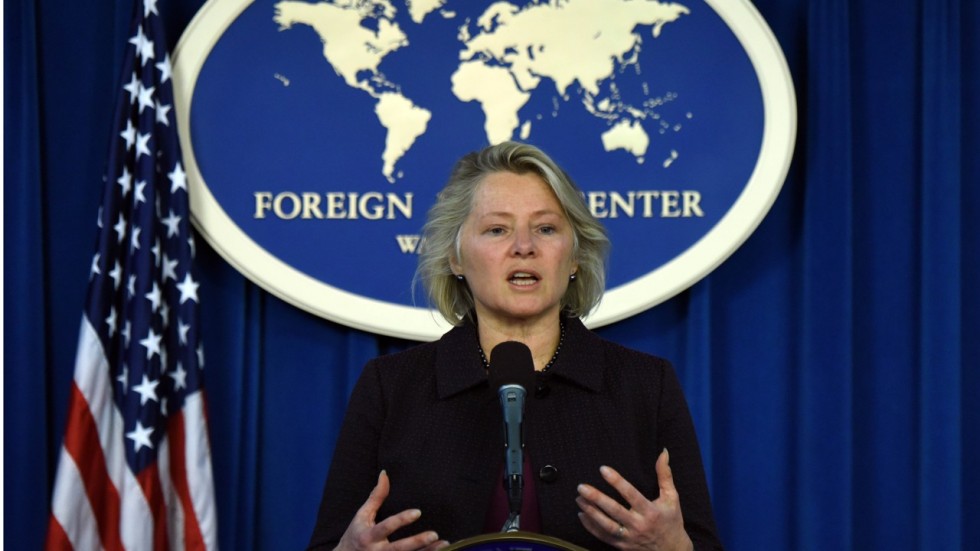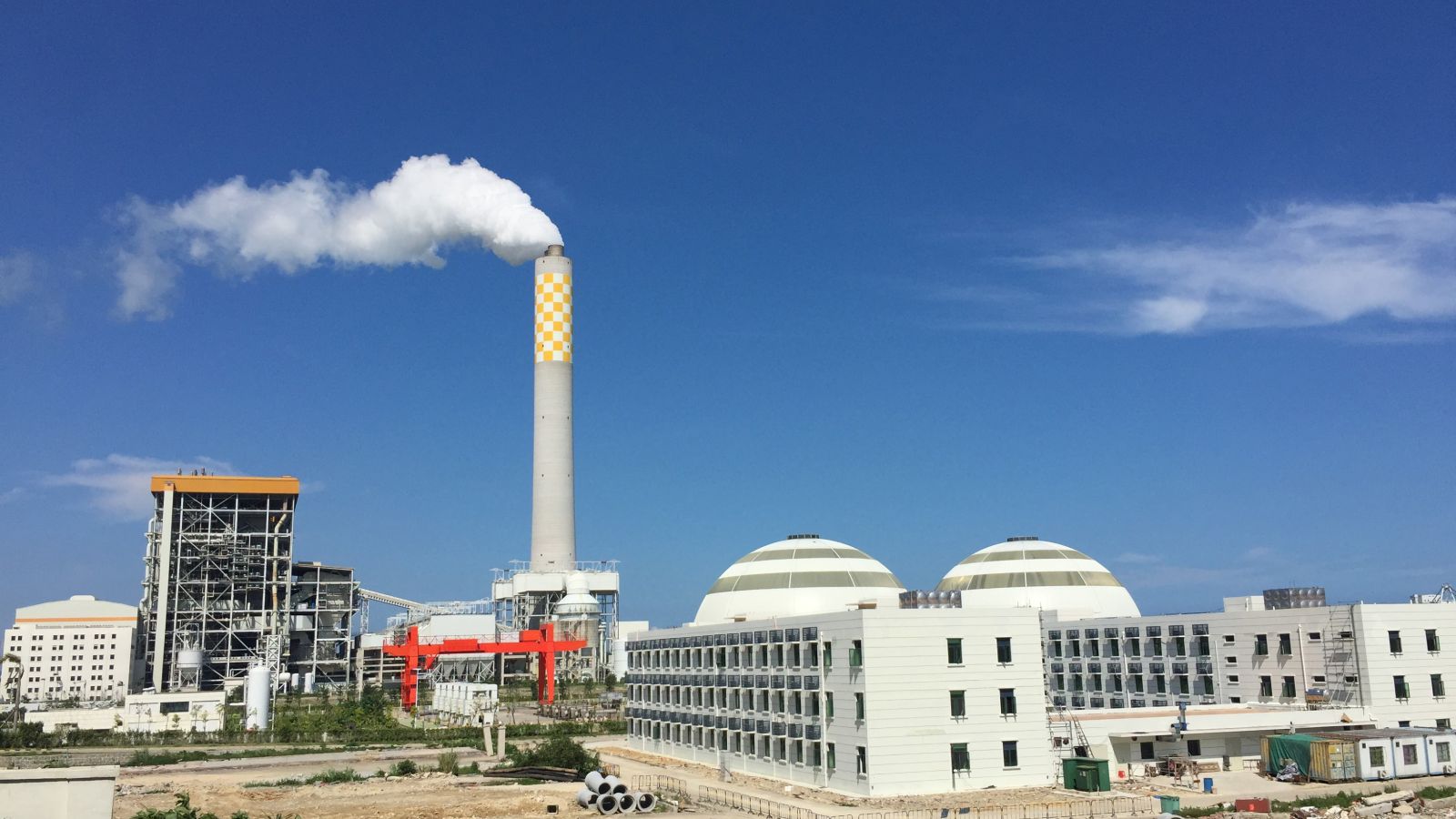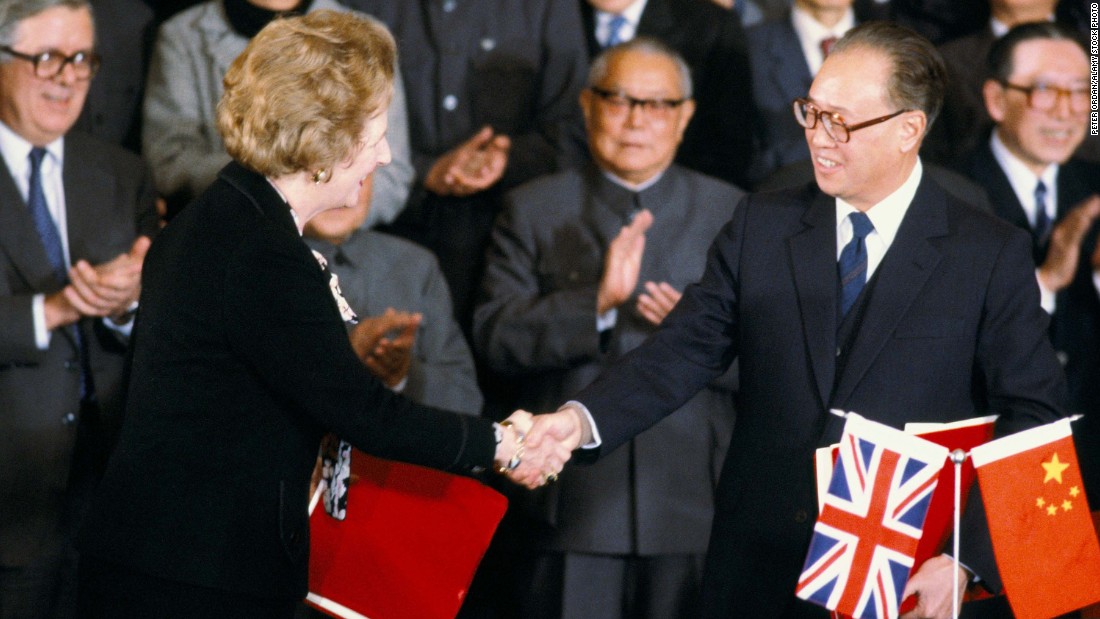
 Trump's National Security Strategy Labels China a "Revisionist Power"
Trump's National Security Strategy Labels China a "Revisionist Power"China is a "revisionist power" attempting to "erode American security" — that is according to President Trump's National Security Strategy, which he presented on Monday. The document represents a rocky patch for China-U.S. relations, potentially threatening the progress made during President Trump's trip to Beijing this November, which many considered the beginning of a "new stage" in bilateral relations.
The National Security Strategy is a document prepared regularly by the executive branch of the U.S. government to inform Congress about major national security concerns. President Trump's 2017 strategy states: "China and Russia challenge American power, influence, and interests, attempting to erode American security and prosperity. They are determined to make economies less free and less fair, to grow their militaries, and to control information and data to repress their societies and expand their influence." The document also mentions trade imbalances between the U.S. and other countries, North Korea's nuclear program, and Chinese trade practices. (Full text of the document is available here.)
Chinese officials were quick to express their protest at the document's characterization of China. Chinese Foreign Ministry spokesperson Hua Chunying urged the U.S. to "abandon its Cold War mentality" and to "stop intentionally distorting China's strategic intentions." The Chinese Embassy in Washington released a statement in response to the National Security Strategy, which reads: "On the one hand, the U.S. government claims that it is attempting to build a great partnership with China. On the other hand, it labels China as a rival. The self-contradictory rhetoric of the U.S. betrays the truth that China and the U.S. are becoming increasingly interdependent and have growing intertwined interests."
China-US Focus contributor Kerry Brown wrote in a recent article that, "For all the Trump bluster. . .the relationship between the U.S. and China is too important to dice with. It is the critical one of the modern era." Despite the rhetoric in the new strategy, many experts doubt that the document will have much effect on policy-making. Ilan Goldenberg argued in Newsweek that "it is pure fantasy to believe that the National Security Strategy will drive policy in the Trump administration. . .this foreign policy strategy is dead on arrival." Max Boot of the Council on Foreign Relations pointed out that "much of what [the strategy] says is at odds with what the president himself believes." Whatever the future of the National Security Strategy, its release on Monday triggered alarm in Beijing on the part of a government that has expressed its desire to "live peacefully with the U.S." and "seek common ground."
 Trump Nominates a Diplomat for Asia
Trump Nominates a Diplomat for AsiaFollowing months of vacancy, a critical position at the U.S. State Department has been filled — Assistant Secretary of State for East Asian and Pacific Affairs. On Tuesday, President Trump formally nominated Susan Thornton, a career diplomat with over 25 years of experience, and one of the few survivors of the Trump-Tillerson State Department purge, to formally fill the position she has been acting in since March.
Pending the Senate's approval, Thornton will bring extensive experience to the State Department. Thornton has served in the State Department since 1991, focusing on U.S. policy in Eurasia and East Asia. In her new position she will be responsible for overseeing foreign policy in China, Japan, Australia and North Korea. She will also be charged with handling the North Korea nuclear threat.
Since Trump took office he has faced mounting criticism for his unclear foreign policy, particularly in China. China-U.S. Focus contributor Peter Bittner describes Trump's actions as "wildly unpredictable in regards to Asian foreign policy as in any other sphere." A major part of the criticism he has received has been due to his failure to nominate an appointee for such a crucial position in the State Department.
While Thornton's appointment was pushed by Tillerson, as she has already accompanied him on several trips to the Asia-Pacific this year, it was opposed by former chief strategist Steve Bannon. In an interview with The American Prospect, Bannon was quoted as saying, "I'm changing out people at East Asian Defense; I'm getting hawks in. I'm getting Susan Thornton out at State." With Bannon out and Trump's appointment of Thornton, the future of China-U.S. relations, while still tumultuous, may be entering a new era.
 China Launches World's Biggest Carbon Trading Market
China Launches World's Biggest Carbon Trading MarketOf late, China has been the holder of two almost-incongruous superlatives: World's Top Polluter, and World's Leading Climate Champion. But the gap between these characterizations seems to be closing. On Tuesday, Beijing announced a plan that sets it on a track "to claim another title: keeper of the world's largest financial market devoted to cleaning up the air."
Here's the plan: China will build a giant market where companies can trade credits for the right to emit greenhouse gases, thus making clean operations significantly cheaper for China's booming power sector. This "cap and trade" approach is already successfully in play in Europe and California. This comes on the heels of an announcement that China is rapidly developing stopgap technologies for capturing carbon.
International commentators have praised Beijing's efforts to "put its money where its mouth is" and course correct on carbon emissions – which it has pledged will reach their peak by 2030 – especially as the United States backs away from environmental engagement.
However, the U.S.' departure from the Paris Climate Agreement could put a damper on China's best efforts. According to Wang Yi, a professor at the Chinese Academy of Sciences in Beijing, "Mr. Trump's renunciation of the Paris agreement could also drag on China's expansion of emissions trading by making powerful companies and industry associations more reluctant to accept pollution cuts." This news also comes in the wake of Donald Trump's freshly-released National Security Strategy, where he officially "dropped" climate change as a security challenge.
Environmentalists also warn that China must consider cleaning up its investments abroad, as officials anticipate that Belt and Road countries could emit triple China's carbon. However, although China has some way to go, these recent announcements demonstrate that China is taking concrete steps in the right direction.
 This Week in Chinese History
This Week in Chinese HistoryDuring this week in Chinese history, The Sino-British Joint Declaration was signed. On December 19, 1984, an agreement between Great Britain and China was signed by Prime Minister Margaret Thatcher and Chinese Premier Zhao Ziyang, which ended over 150 years of British rule of Hong Kong. The agreement put in place a timeline for China to assume sovereignty over Hong Kong by 1 July 1997. The signing ceremony at the Great Hall of the People in Beijing was the culmination of a 27-month long diplomatic process. The 'one country, two systems' formula proposed by paramount leader Deng Xiaoping was included in this agreement.
Prepared by China-US Focus editorial teams in Hong Kong and New York, this weekly newsletter offers you snap shots of latest trends and developments emerging from China every week, while adding a dose of historical perspective.
- 2017-12-15 White House and Secretary of State contradict each other on North Korea talks
- 2017-12-08 China Boasts its Technology Chops at the 4th Annual World Internet Conference
- 2017-12-01 The Future of the China-US Economic Relationship
- 2017-11-17 The “Indo Pacific”: A New American Strategy for Asia?
- 2017-11-10 President Trump Revels in China’s State-Visit Red Carpet Treatment
- 2017-11-03 Will China Display Hard or Soft Power in the Era of Xi?
- 2017-10-27 All Eyes on Xi
- 2017-10-20 The 19th Party Congress Begins
- 2017-10-13 Tech Titans
- 2017-10-06 China’s Super Golden Week
- 2017-09-29 All Quiet on North Korea’s Western Front?
- 2017-09-22 Back Together and Better than Ever: Renewed Sino-Russian Relations
- 2017-09-15 China positions itself to dominate the industries of the future
- 2017-09-08 Did North Korea just test a hydrogen bomb?
- 2017-09-01 Are Forced Technology Transfers Forcing the U.S. and China to Rethink How They Do Business?
- 2017-08-25 Bannon Out: What now for the China-US relationship?
- 2017-08-18 Trump Launches “Investigation on Whether to Investigate” China’s IP Laws
- 2017-08-11 Threats of "Fire and Fury" on the Korean Peninsula
- 2017-08-04 Trump Administration Plans Trade Actions Against China
- 2017-07-28 Xi to Dominate the 19th CPC Congress
